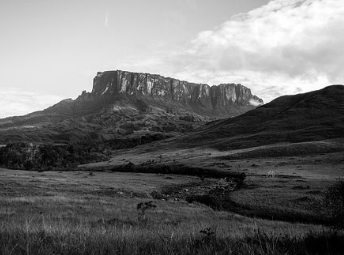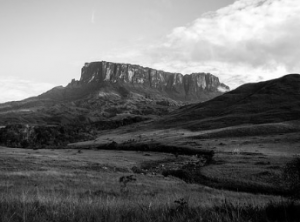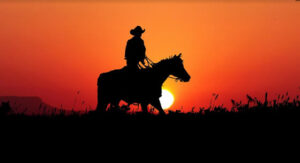
Reframing Weaknesses in a New Light
In surprising ways, character traits or personal conditions that seem to block us can sometimes be transmuted into the very thing that can help us most. Our job (largely) is to stay alert to these special moments.
From early American history we are provided with another illustration of the unexpected way in which this process can unfold. This true story concerns Clark Davis, a resident in 1827 of Independence, Missouri, and one of twenty-five men who conducted the first, and perhaps most foolish, silver mining expedition to Colorado. One of his friends, James Cockrell, claimed to have found a silver mine in Colorado four years earlier while on a beaver-trapping venture. In the summer of 1827 Clark, his friend, and twenty three other frontiersmen set off on horseback to make their fortunes. James Cockrell was appointed leader of the group.
Crossing the Great Plains in those times was dangerous. Each man took only his horse, a rifle and ammunition, scant bedding, and enough food for the first ten days. Hostile Indians would be a constant threat during the trip. Yet the group successfully made it through two hundred miles where food was scarce and found itself following the Arkansas River westward through buffalo country. So all the way to the base of the Rocky Mountains a steady supply of food was available.
Once they were in the proper region, the leader of the expedition had considerable trouble finding the silver deposits. Clark and the other men grew restless because they had come a long way. With a mutiny starting to develop, James Cockrell announced that he had rediscovered the valuable mineral deposits. However, the men were disappointed by what they saw: dirty-looking rocks with occasional bright specks of metal in them. Not one of the men had ever seen silver ore, nor did they know the first thing about mining. They had been under the delusion that large chunks of pure silver could be easily chiseled out with tomahawks and that they could quickly extract enough to make themselves wealthy for life.
Despite their disappointment and frustration, each one collected some of the outstanding samples available, packed them on their horses, and then set out for home. The return trip went smoothly until they reached a point on the Arkansas River where Dodge City, Kansas, now stands.

They camped that evening, ate a hearty supper of buffalo meat, and went to bed. Two men at a time guarded the horses for fear that hostile Indians would try to steal them. On that fateful night the Indians succeeded in sneaking into their camp, fired their guns, and let out war whoops that frightened the horses away. The frontiersmen saved themselves by taking up positions along the riverbank and holding their adversaries at bay with rifle fire. But when the sun rose the next morning, they knew they were in a dire situation. It was late autumn, and they were four hundred miles from the nearest town, with no food or horses.
As the men contemplated their circumstances, they realized that things were looking particularly dismal for Clark Davis, the man in the group who was most loved and respected. For Clark had one extraordinary weakness: he was obese, weighing over three hundred pounds, with a body of short stature. They talked among themselves privately, agreeing the Clark had little hope of making it home. At first they thought they would have to leave him behind on the prairie so he wouldn’t slow them down. However, their affection for Clark was so strong that despite his critical shortcoming, they decided to keep him with them. The men took turns carrying his rifle and ammunition. Each day five of them would walk with Clark at his rate, taking three or four hours longer than the rest of the group to cover twenty-five miles. The first week was torturous for Clark. His feet blistered terribly, and his limbs became exceedingly raw and sore.
The first two hundred miles of the journey on foot was through buffalo country, and food was easily accessible. The final two hundred would be the real test, because their only food during that stretch would be the little buffalo meat they could carry with them. As they started into that desperate phase of the trip, a remarkable change came over Clark. His condition began to improve. He and his bodyguard party lagged less and less behind the main group during each day’s march. As they moved deeper into the region, Clark actually began to lead the group! His weakness had been amazingly transformed into a strength.
When the party was still more than one hundred miles from home, Clark alone had sufficient strength to go on. One morning when all the men gave up hope and were unable to keep marching, Clark went out by himself with his rifle to hunt for game. He returned with two deer – enough food to sustain them all for the remainder of the trip home.
At the end of this remarkable expedition the men agreed on one point about their adventures. When the crisis had come four hundred miles from home, what had looked like the greatest weakness in their group – Clark’s overweight condition – proved to be the greatest asset, something more valuable than all the gold or silver in the Rocky Mountains. But without their love for Clark and their deep sense of community, that alchemical transformation of Clark’s shortcoming would not have been possible.
*****************************************************************************
Repr inted with permission from ‘The Edgar Cayce Handbook’ by Mark Thurston, Ph.D., and Christopher Fazel. (Ballantyne Books). Images courtesy www.pixabay.com.
inted with permission from ‘The Edgar Cayce Handbook’ by Mark Thurston, Ph.D., and Christopher Fazel. (Ballantyne Books). Images courtesy www.pixabay.com.
The Edgar Cayce Handbook for Creating Your Future: The World’s Leading Cayce Authorities Give You the Practical Tools for Making Profound Changes in Your Life


Be the first to comment